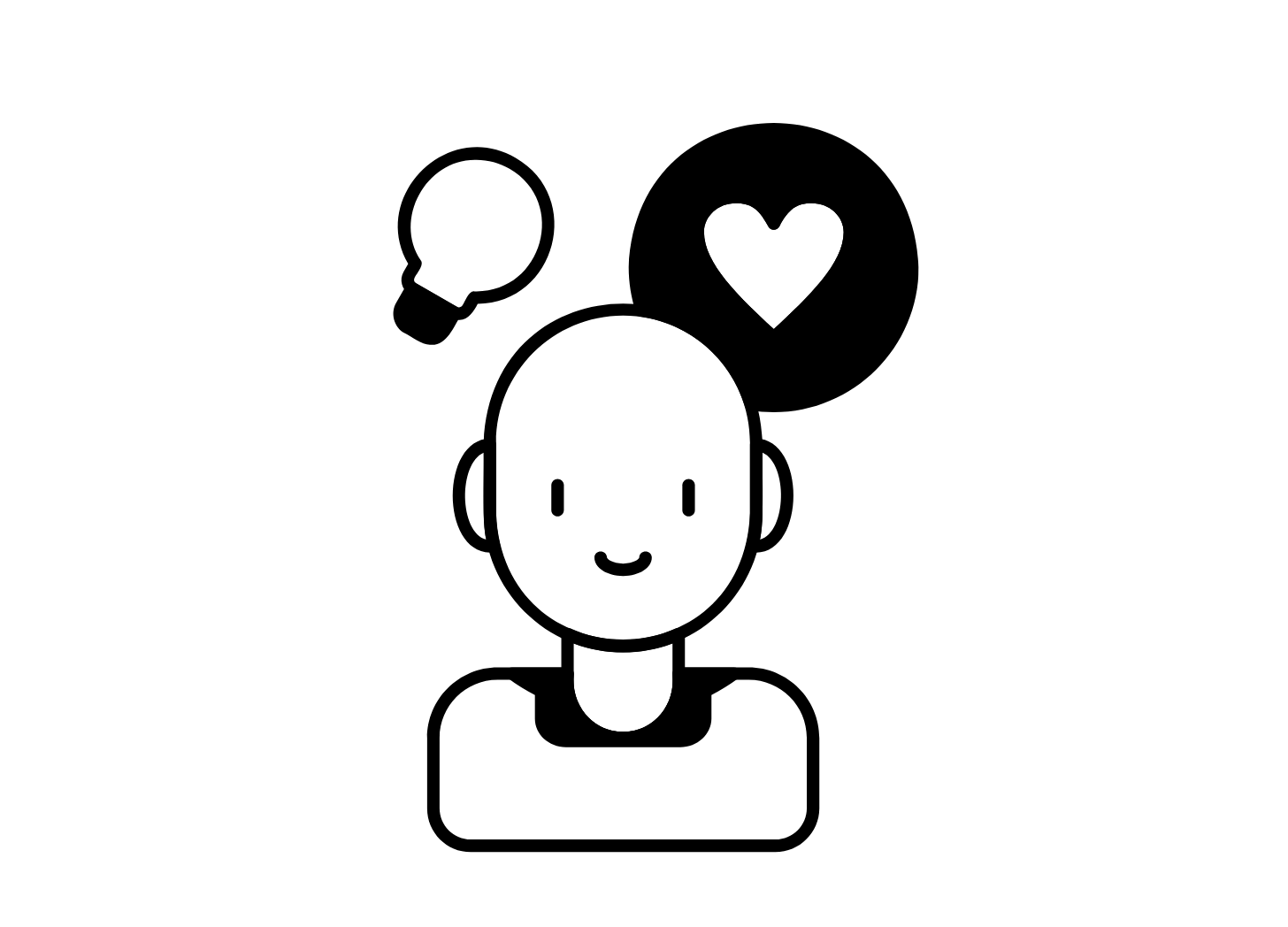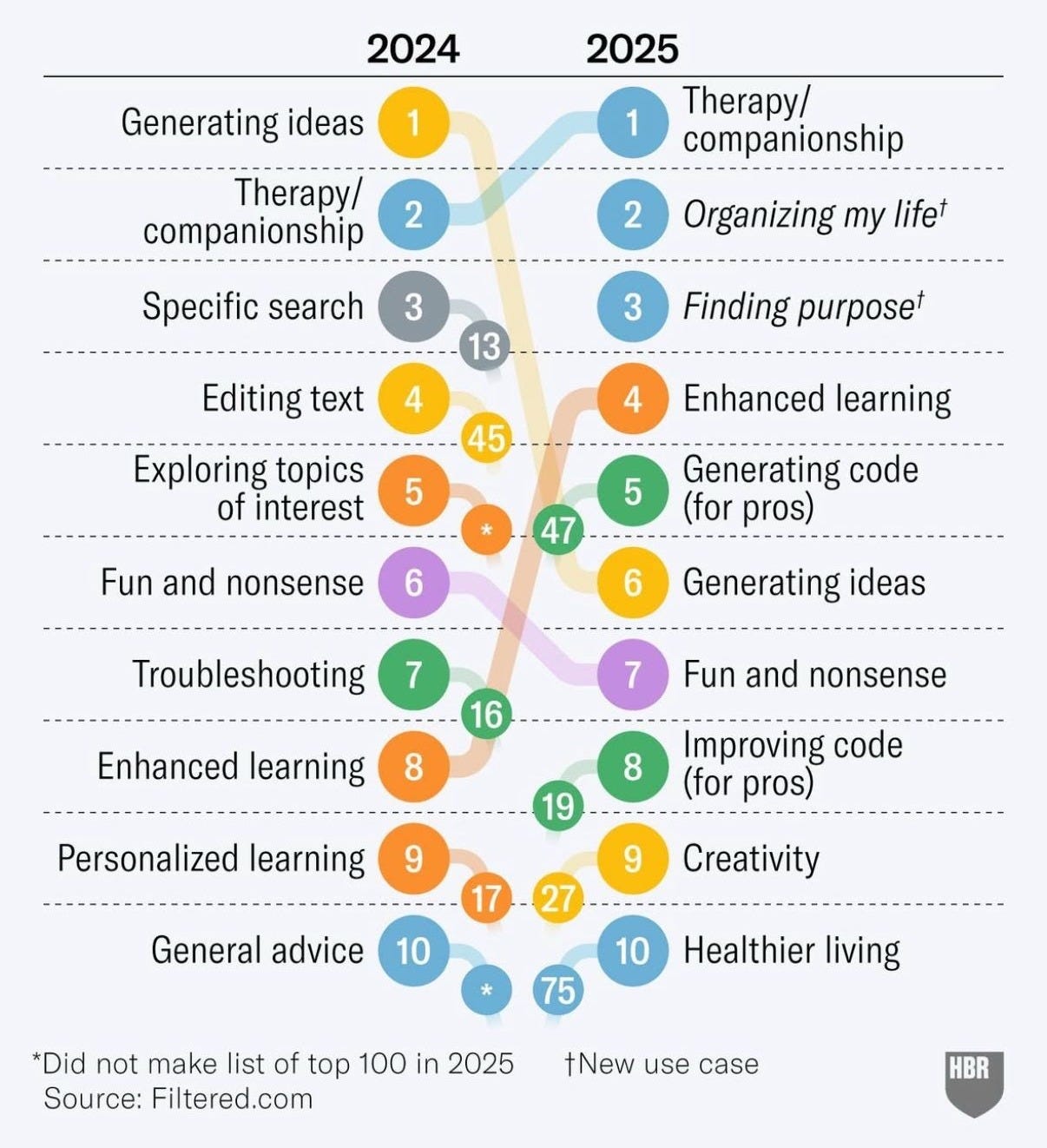AI was supposed to help us work faster, right?
Write better, code smarter, summarize quicker. All very logical. But humans don’t always act logically.
We are driven by what feels urgent, what feels overwhelming, and sometimes what feels lonely.
The latest data from Filtered.com shows a curious shift.
The top reasons people use AI in 2025 are not what you would expect from a cold, efficient world of productivity tools.
Instead, they tell a very human story. A story about confusion, overload, and the quiet need for help.
Let me show you what I mean.
Therapy and companionship
Organizing my life
Finding purpose
Enhanced learning
Summarizing content
Generating ideas
Generating code (for professionals)
Improving code (for professionals)
Creativity
Visual art and design
Looks simple at first. But behind each of these items, there is human behavior trying to cope with a world that never slows down.
Now, let’s go through them one by one.
People are not looking for AI to be wise.
They’re looking for something that’s available at 2 AM when no one else is.
Loneliness is a global epidemic. AI fills a social gap that shouldn't exist, but does.
Most people aren’t disorganized because they lack skills.
They’re disorganized because life throws too much at them.
AI is being used to manage the chaos, not to “optimize workflows” but simply to breathe easier.
Here’s the hard truth: If people are asking AI to help them find purpose, it’s because they’re not finding it in their work, their community, or even themselves.
AI becomes a reflection tool.
A safe place to think aloud.
Learning isn’t about “more information”. It never was. It’s about cutting through the noise to really grow.
AI helps people learn faster by simplifying, summarizing, and focusing.
Not because people are lazy, but because attention is a scarce resource.
We’re drowning in articles, videos, and posts.
AI summarization isn’t a luxury, it’s survival.
People use AI to decide what’s worth their time. It’s a coping mechanism for information fatigue.
This was the golden child of AI in 2024. Now, it’s losing its shine.
Why?
Because more ideas don’t solve decision paralysis.
People are realizing that endless suggestions are not the answer.
Clarity is.
Here, AI is doing what it was meant to do.
Automating repetitive tasks.
Developers use it as a smart assistant, not a magician.
It saves time. Simple as that.
Similar story.
AI helps polish code, suggest improvements, and catch errors faster.
This is pure augmentation, human expertise stays in the driver’s seat.
AI is not creative in the human sense.
But it can show you what you didn’t think of. People use AI to break their mental habits, to see new angles.
It’s not replacing creativity. It’s expanding your sandbox.
AI makes visual experimentation accessible.
You no longer need to be a design pro to prototype ideas.
This is democratization in action, giving more people the chance to create, even if they’re not experts.
If you step back, a clear pattern emerges. Most of these AI use cases are not about doing more. They are about managing overload.
Emotional overload
Cognitive overload
Information overload
We are not asking AI to make us superhuman.
We are asking it to help us stay above water.
From a systems thinking perspective, these are downstream reactions. The real problems come from upstream causes. We are bombarded with too much information, expected to do too much, and supported too little.
AI is a convenient patch. But it does not fix the root causes.
We should be careful not to confuse convenience with the solution.
It is a tool. Helpful, yes. But only when used with awareness.
The way people use AI in 2025 is a reflection of modern life pressures. Loneliness. Mental fatigue. Decision overload. It shows where we struggle and where we are looking for relief.
This is a free and open article, so I want to check… Was this reading worth a cup of coffee?
Understanding this is essential. Not for blaming technology. But for designing better systems around it. Systems that respect human limits and support human needs.
How are you using AI?
.png)





